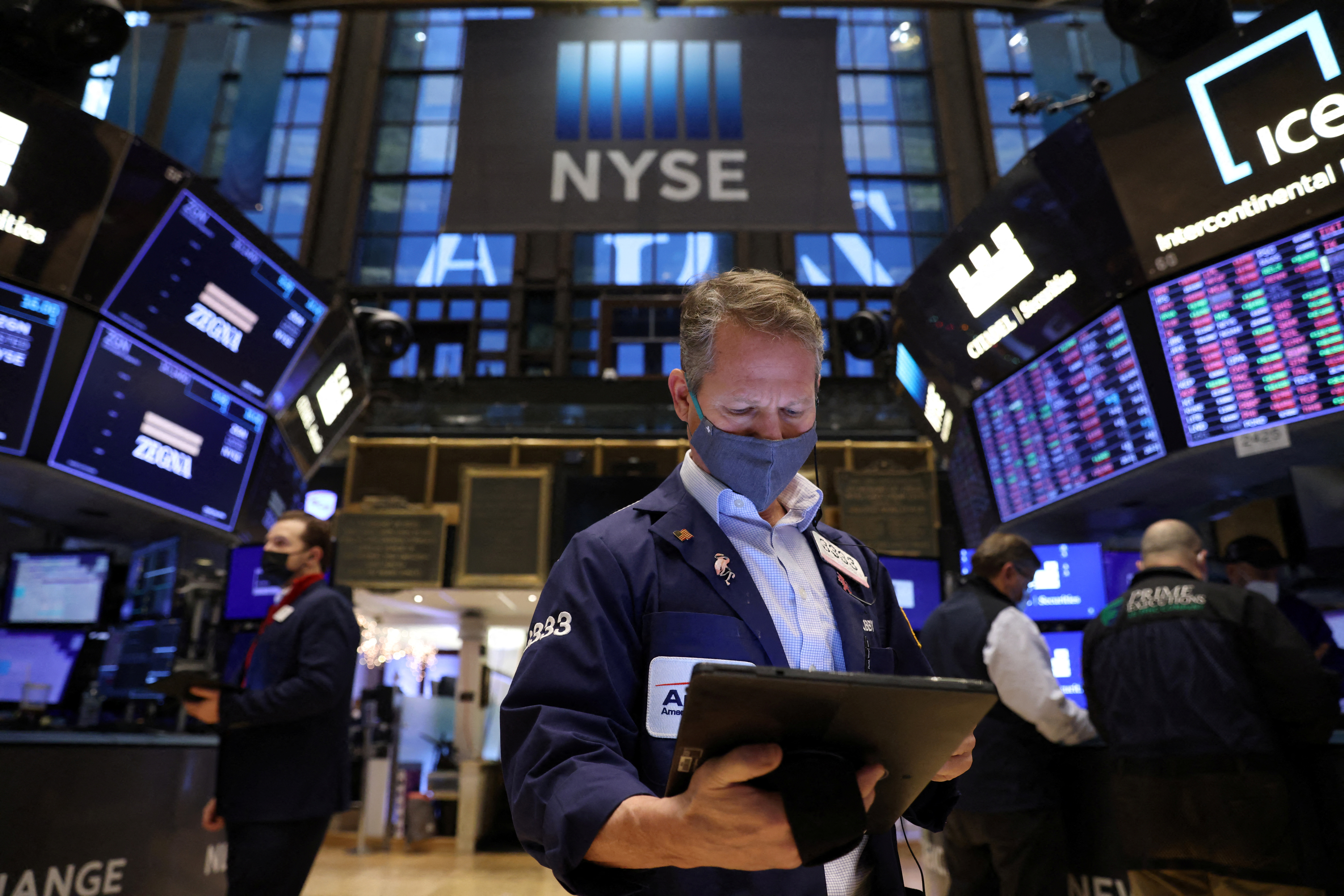* European, Asian shares gain on Omicron severity data
* Safe-haven bonds less favoured
* U.S. consumer confidence grows
By Alun John and Lawrence White
HONG KONG/LONDON, Dec 23 (Reuters) – Global shares extended a recent rally on Thursday while safe-haven bonds and currencies eased as markets welcomed signs that the Omicron variant of COVID-19 might be less severe than feared, as well as robust U.S. economic data. The STOXX index of Europe’s 600 largest shares rose 0.3%, following earlier gains in Asia. Japan’s Nikkei gained 0.57% and MSCI’s broadest index of Asia-Pacific shares outside Japan rose 0.8%. It put stock markets on course for a third successive day of gains as they recovered from a jolt on Monday when worries about the new coronavirus variant pushed investors to safe-haven assets like the greenback. “The recent health data from the UK and other places around the world indicate that the worst case is unlikely: even though (Omicron) transmission rates are reportedly higher, this variant seems less virulent and less prone to cause serious illnesses or death,” said David Chao, global market strategist Asia Pacific at Invesco. The risk of needing to stay in hospital for patients with the Omicron variant of COVID-19 is 40-45% lower than for patients with the Delta variant, according to research by London’s Imperial College published on Wednesday. European government bond yields continued to tick up as the trickle of risk sentiment flowing back into the market reduced the need for safe-haven debt. Germany’s 10-year Bund yields hit -0.284%, their highest since late November.

